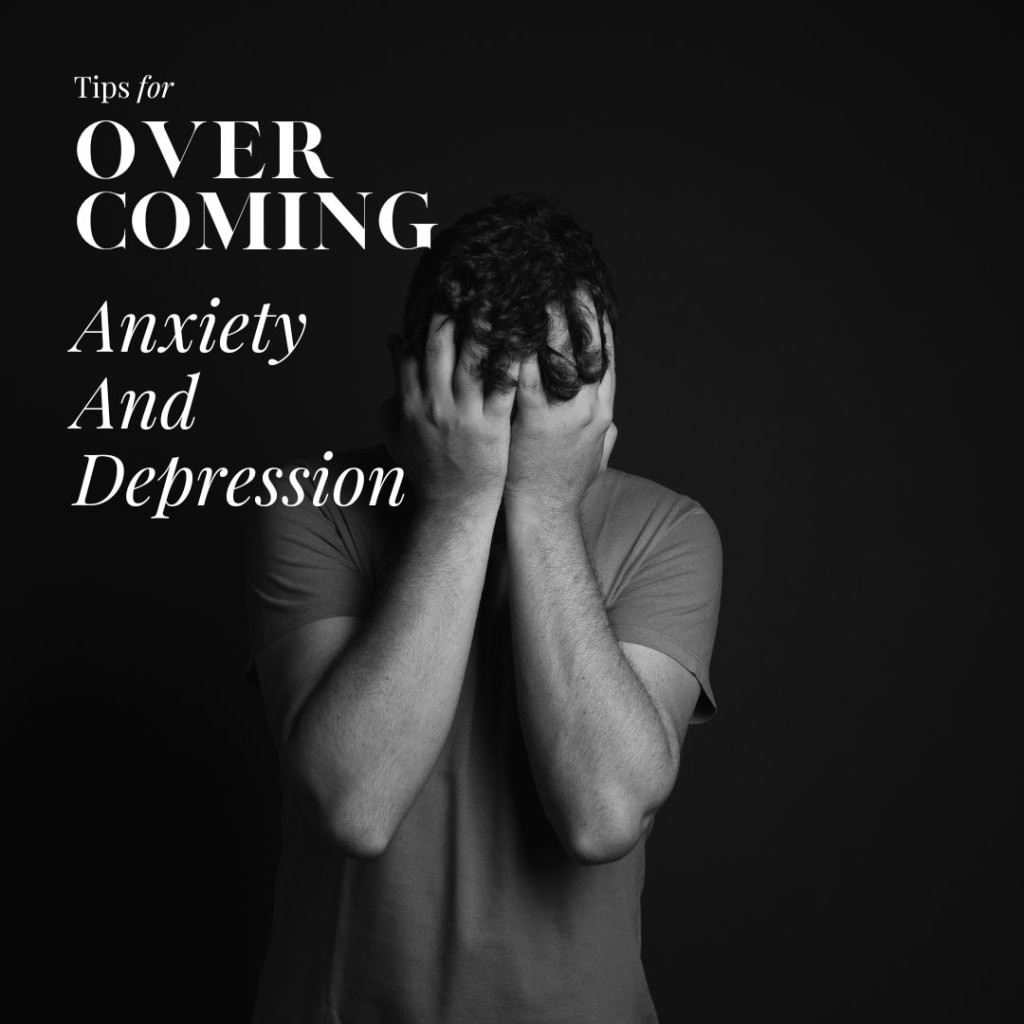From Darkness to Light: Overcoming Anxiety and Depression
Breaking Free from the Chains: Overcoming Anxiety and Depression with Therapy and Medication

Introduction:
In the quiet corners of our lives, anxiety and depression often linger like unwelcome guests. They cast a shadow, clouding our thoughts, emotions, and actions. These mental health challenges, affecting millions worldwide, can make even the simplest of daily tasks feel like monumental hurdles. However, amid the darkness, there is a journey of hope, resilience, and recovery. In this blog post, we will explore the path from darkness to light, delving into the struggles, strategies, and stories that inspire us to overcome anxiety and depression.
Understanding Anxiety and Depression:
Anxiety and depression are complex mental health conditions that touch every aspect of a person's life. Anxiety often manifests as a constant, nagging worry, restlessness, and an unshakable fear that something terrible is about to happen. Depression, on the other hand, brings a relentless sense of sadness, hopelessness, and a pervasive numbness that dulls the colors of life.
Recognizing the Signs:
The first crucial step on the journey to recovery is recognizing the signs. Anxiety and depression often creep into our lives slowly, making it easy to dismiss the initial symptoms. Sleepless nights, changes in appetite, loss of interest in once-enjoyed activities, and a persistent sense of sadness are all signs that something may be amiss. Acknowledging these signs is the first flicker of light in the darkness.
Seeking Help:
In the labyrinth of anxiety and depression, seeking professional guidance is like finding a guiding star. Therapists, psychiatrists, and counselors are trained to help navigate the tumultuous seas of the mind. They offer not only a safe space to express emotions but also practical tools to manage anxiety and depression. Treatment options may include therapy, medication, or a combination of both. The act of seeking help itself is a powerful testament to one's courage and a crucial step towards healing.
Personal Stories of Triumph:
In the depths of despair, stories of individuals who've emerged from the shadows of anxiety and depression shine like beacons of hope. These stories remind us that recovery is not a distant dream but a tangible reality. They illuminate the resilience of the human spirit and the transformative power of treatment, support, and personal determination.
Take Jane, for instance. She battled anxiety for years, her life ruled by irrational fears and persistent worry. But with the help of a compassionate therapist and the support of her loved ones, Jane slowly began to regain control of her life. She started practicing mindfulness, learned to challenge negative thought patterns, and gradually reclaimed her sense of self-worth. Today, Jane shares her story to inspire others, proving that even the darkest of storms can pass.
Self-Care and Coping Strategies:
While professional help is crucial, self-care is the foundation upon which recovery is built. Engaging in regular exercise, maintaining a balanced diet, practicing mindfulness, and ensuring adequate sleep can significantly impact one's mental well-being. These practices, though not a cure-all, provide a strong shield against the storms of anxiety and depression.
Building a Support System:
Recovery thrives in the presence of a strong support network. Friends and family often play an invaluable role in the healing journey. Opening up about one's struggles, though daunting, is an essential step toward reducing stigma and seeking the support needed. When we talk openly about mental health, we chip away at the walls of silence and pave the way for understanding and empathy.
Breaking the Stigma:
Speaking openly about anxiety and depression is an act of bravery. It challenges the stigma surrounding mental health, shattering misconceptions and paving the way for greater acceptance. Conversations, education, and initiatives aimed at destigmatizing mental health challenges are making a significant impact in communities worldwide. Together, we can change the narrative, replacing judgment with compassion.
Moving Forward:
Recovery from anxiety and depression is not a linear journey, and setbacks are a part of the process. It's essential to remember that every step forward, no matter how small, is a triumph. Setting realistic goals and maintaining hope are keys to long-term well-being. The path from darkness to light may be arduous, but it is a path illuminated by the strength within each one of us.
Conclusion:
In the depths of anxiety and depression, there exists a path toward healing, a journey from darkness to light. While the shadows may loom large, they are not insurmountable. With the right help, support, and determination, individuals can emerge from the depths of despair and find the light once more. Recovery is not just a possibility; it is a reality. So, let us continue to support one another on this path, for there is light at the end of the tunnel, and there is hope for a brighter tomorrow.





Comments
Shraddha Singh is not accepting comments at the moment
Want to show your support? Send them a one-off tip.